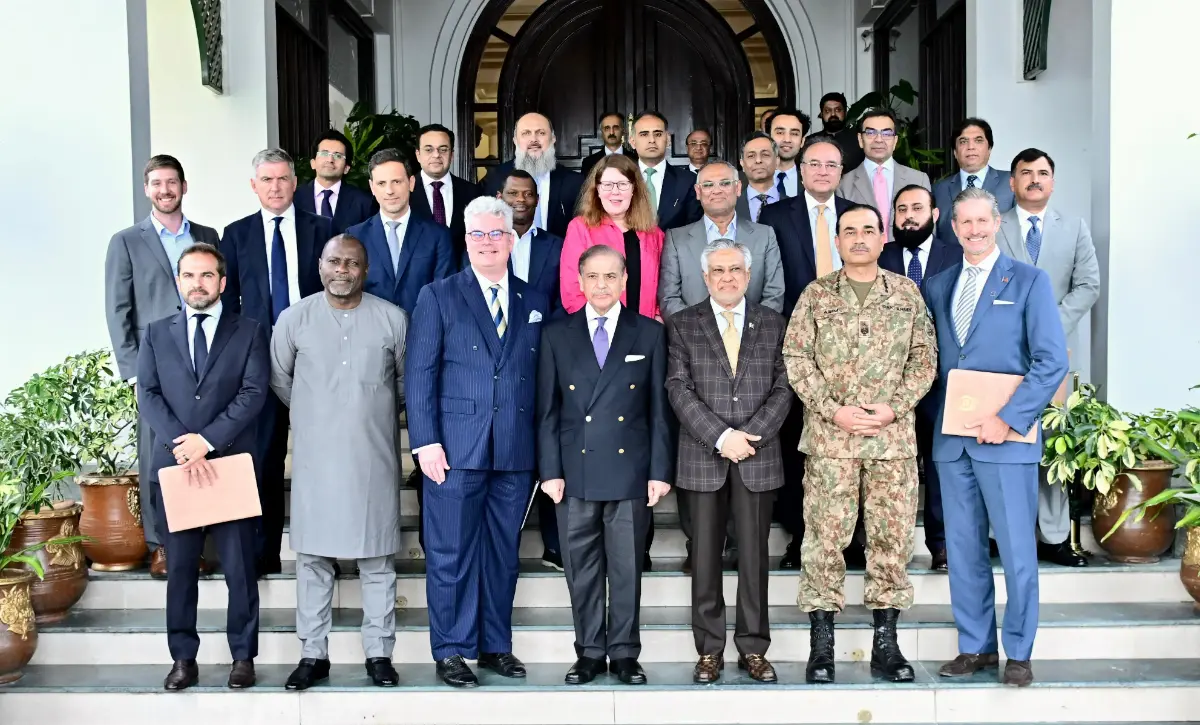You’re a nation on the edge of bankruptcy. Foreign reserves are drying up. The IMF’s breathing down your neck. Your army’s worried, your politicians are scrambling, and your people? Tired. So what do you do?
Well… if you’re Pakistan, apparently you fly to Washington uninvited, wait awkwardly outside Donald Trump’s door for half an hour, and then walk in carrying a polished wooden box full of rare earth minerals worth — allegedly — six trillion dollars. Reference
Yeah. Six. Trillion. With a “T.”
I know, sounds like the opening scene of a political dramedy. Except this was real.
Contents
Why Would Pakistan Do Something So… Bold?
Short answer? Desperation.
Longer answer: Pakistan’s broke. The economy’s hanging by a thread, and the country’s sitting on a potential jackpot — minerals that the modern world desperately needs: copper, lithium, rare earths, gold. Stuff that powers EVs, smartphones, missiles, satellites.
Problem? Those minerals are buried in regions — Balochistan, Khyber Pakhtunkhwa, Gilgit-Baltistan — that have never been fully happy being part of Pakistan. Some were annexed. Some were pressured. Old tensions simmer. The military knows if those provinces ever really break away, goodbye minerals. Goodbye hope.
So the army keeps control through its Frontier Works Organization. It doesn’t trust local governments. And in D.C., the message was clear: “These resources are under our lock and key. Want them? Talk to us.”
📍 Quick Map of the Mineral Jackpot (and Why It’s Complicated)
| Region | What’s Buried There | Why It’s Politically Tricky |
| Balochistan | Copper, gold, rare earths | Annexed in 1948; long-running insurgency |
| Khyber Pakhtunkhwa | Lithium, gemstones, antimony | Contested 1947 vote; Pashtun autonomy movements |
| Gilgit-Baltistan | Uranium, copper, gold | Seized post-partition; no proper plebiscite |
So yeah, not exactly a smooth corporate mining pitch.
Deals They Walked Away With
Pakistan didn’t just show rocks and leave. They signed things:
- A $500M refinery project with Missouri-based US Strategic Metals (gold, copper, tungsten, rare earth refining).
- A construction/mining deal with Portuguese group Motor Angel.

The sales pitch was: We’re open for business. And yes, the army’s watching the shop.
Why Trump Even Listened — Three Big Reasons
1. He’s Trying to Revive the Abraham Accords (Middle East Peace 2.0)
Trump wants his big foreign-policy trophy back. After the 2023 Gaza mess, the Abraham Accords (normalization between Israel and Muslim nations) stalled.
Saudi Arabia is the main prize. But having Pakistan — a nuclear Muslim country — nod along? Adds weight. Gives leverage against China and Iran too.
2. Afghanistan & The “We Shouldn’t Have Left Bagram” Regret
Trump keeps saying the U.S. messed up leaving Bagram Airbase. He’s not itching to send troops back tomorrow, but he wants influence.
Pakistan’s army chief Asim Munir? He’s furious at Taliban-backed attacks spilling over. He’d love backup. That minerals box? Icebreaker. The real talk: security, revenge, leverage.
3. Rare Earths = Power, and China Owns the Market
America hates being dependent on China for rare earths. Pakistan’s stash is tempting. So are Myanmar’s. Even Bangladesh is suddenly interesting.
And here’s the carrot Washington waves now: digital finance and crypto partnerships. (More on that in a sec.)
The Weird Crypto Twist Nobody’s Talking About Enough
Okay, slight detour — but it matters.
Russia’s Eastern Economic Forum, Putin’s buddy Anton Kobakov drops a bomb: the U.S. might use crypto and stablecoins to quietly deflate its $37 trillion debt.
Sounds tinfoil-hatty, I know. But think about it:
- America’s done a version of this forever — print money, pay debts back with weaker dollars.
- Stablecoins (USDT, USDC) just… globalize the pain. If billions of people worldwide hold digital dollars, inflation hits everyone, not just Americans.
- Trust’s the issue. U.S. can change rules overnight (remember Nixon killing the gold-gold standard in ’71?). But if there’s a crisis — cyberattack kills ATMs, say — and the government rolls out a “digital dollar” app? People will grab it. Fear works.
Meanwhile, companies like MicroStrategy (hi, Michael Saylor) keep buying Bitcoin. If BTC gets strategically important, Washington could just… regulate or partially commandeer it. Quietly. No need for fireworks.
⚖️ Winners & Losers — If This Game Plays Out
| Pakistan’s Upside | Pakistan’s Risks |
| Foreign cash for mining | Military overreach could fuel rebellion |
| Diplomatic clout | Dependency on U.S. finance & politics |
| U.S. Upside | U.S. Risks |
| Rare earth alternative to China | Global trust issues with digital dollar |
| Leverage in South Asia & Middle East | China/Russia push harder on gold & alt-currencies |
My Take (aka the Part Where I Ramble a Bit)
I’ve blogged about tech, money, and power plays long enough to love when global politics turns soap opera. This one’s got it all: a broke nuclear nation knocking on Trump’s door with $6 trillion in shiny rocks, a former president dreaming of Middle East peace and rare earth glory, and whispers that the U.S. might turn crypto into its next debt escape hatch.
It’s messy. It’s human. And it’s a reminder that money, minerals, and power are the real plotlines behind the headlines we scroll past.
If you’re an investor or just a curious reader:
- Rare earths are the new oil.
- Digital dollars could shift the global game overnight.
- Countries in crisis will sell whatever they have to survive. Sometimes literally rocks in a box.
Final Word
What happened in that room wasn’t just gift-giving. It was a survival pitch from Pakistan and a power recalculation from the U.S. The minerals might matter less than the message:
“We’ve got resources. We’ve got problems. And we’re ready to deal.”
Whether that changes the global money map? Still up for grabs. But I wouldn’t bet against it.